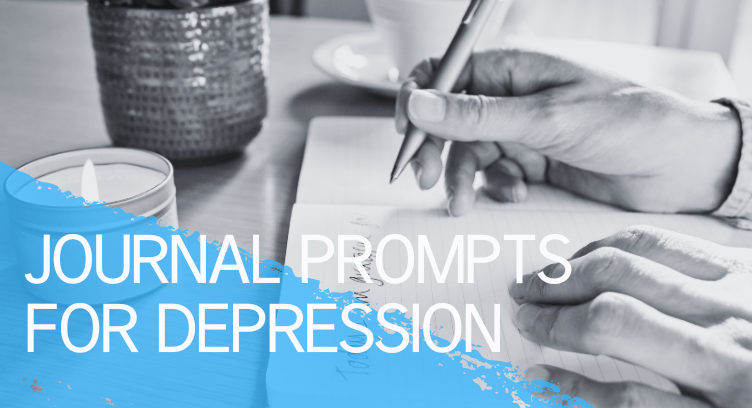
Journaling has long been recognized as a powerful tool for individuals struggling with depression. It offers a safe space to pour out thoughts, feelings, and emotions onto paper, providing an opportunity for self-reflection and understanding. Through the process of journaling, individuals can better manage symptoms of depression and track their progress over time.
Jason Phillips, a licensed clinical social worker in Michigan, emphasizes the importance of journaling for those dealing with depression. He explains that journaling allows individuals to log their thoughts and review their journey, especially on difficult days. It serves as a tangible record of progress, serving as a reminder of how far they’ve come.
For those unsure of where to begin, journal prompts can be immensely helpful. These prompts are questions or statements designed to guide individuals in exploring their thoughts and emotions. They provide a structured framework for journaling, making it easier to delve into one’s feelings and identify next steps.
Recording insights in a journal can be a cathartic and relieving experience. It allows individuals to express themselves freely without fear of judgment, either from others or themselves. Furthermore, journaling can help alleviate the burden of pent-up emotions, which may be contributing to low energy levels or disrupted sleep patterns.
When it comes to journal prompts for depression, they don’t necessarily have to focus solely on expressing feelings. Instead, they can center around navigating the moment or finding comfort during periods of negative thinking. The goal is to get thoughts down on paper and see where they lead.
Here are 13 journal prompts specifically tailored for managing symptoms of depression:
- What are my goals for the day?
- What things brought me happiness today?
- What are three things I’m grateful for right now?
- List all of today’s achievements, no matter how small.
- What coping mechanisms did I practice today? Alternatively, what activities helped me feel better?
- Did I engage in any self-care today? If so, what did I do? If not, what hindered me?
- List three self-care actions I’d like to incorporate into my routine this week.
- What triggers or events exacerbate my depression symptoms?
- How do I cope when faced with these triggers or events?
- What are consistent sources of happiness in my life? (i.e., activities or experiences that consistently bring me joy)
- Describe my ideal self. How can I move closer to embodying that version of myself?
- If I could envision my “happy place,” what would it look like?
- Complete a mindfulness or relaxation practice and reflect on the experience.
It’s important to recognize the formal symptoms of depression, which may include:
- Depressed mood for the majority of the day, nearly every day, characterized by feelings of hopelessness, sadness, or emptiness.
- Decreased ability to enjoy or interest in activities, also present on most days.
- Significant changes in weight, either weight loss or gain.
- Sleeping too much or too little.
- Noticeable changes in physical and cognitive reactions related to mood, such as pacing, rapid or slowed speech, or memory issues.
- Persistent fatigue or loss of energy.
- Difficulty concentrating on tasks.
- Recurrent thoughts of death or suicidal ideation.
By acknowledging these symptoms and utilizing journaling as a tool for self-care and reflection, individuals can take proactive steps toward managing their depression and improving their overall well-being.

The breadth of knowledge compiled on this website is astounding. Every article is a well-crafted masterpiece brimming with insights. I’m grateful to have discovered such a rich educational resource. You’ve gained a lifelong fan!
How long have you been blogging? Your blog design is amazing. You make it look so easy. Your website looks great overall, and the content is great as well.
thank you